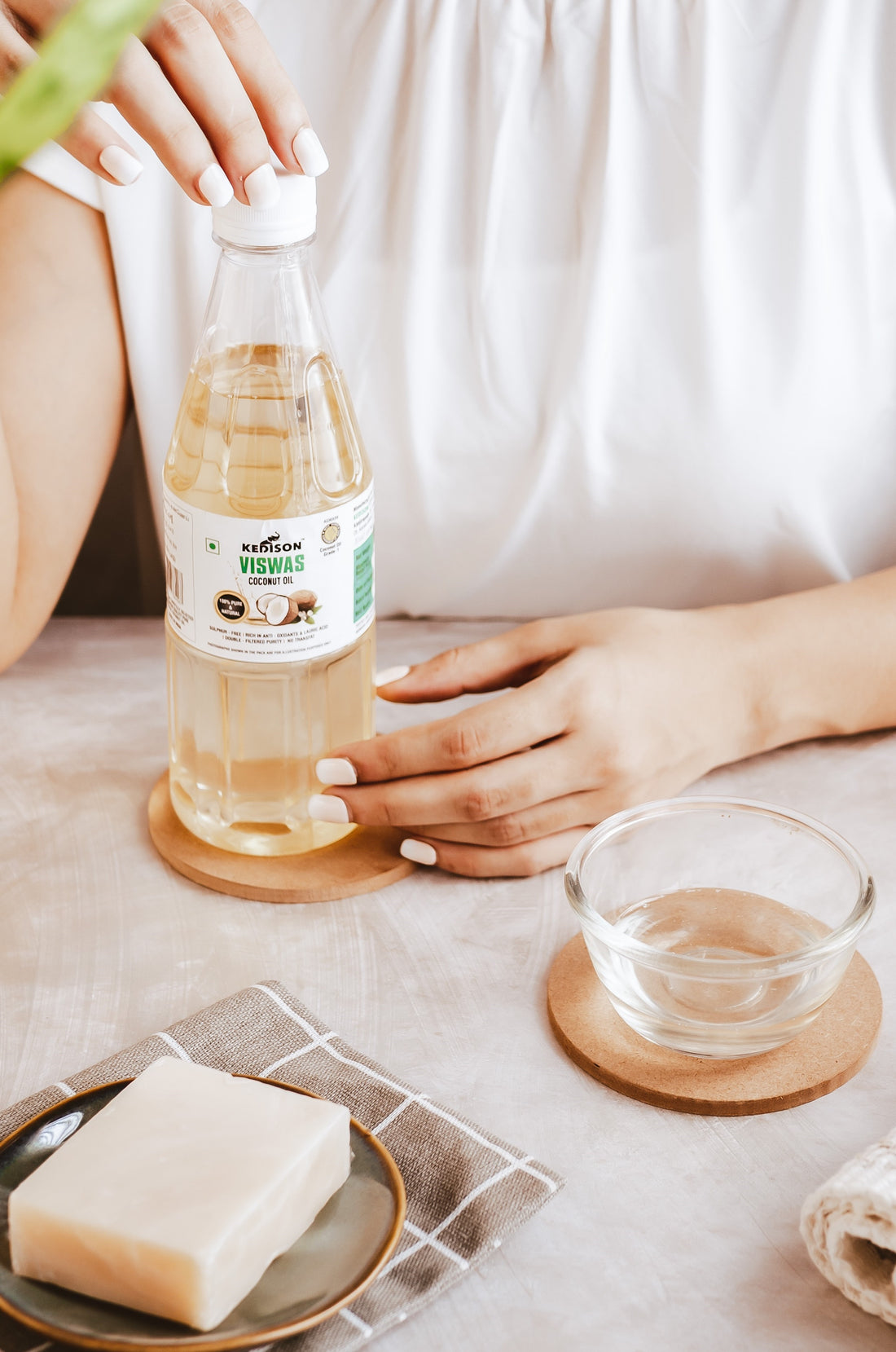
Ensuring Quality Coconut Oil: Why It Matters for Your Health
Share
Recent news about food poisoning linked to adulterated coconut oil in Idukki, Kerala has raised concerns about the safety of coconut oil products. This incident serves as a reminder that not all coconut oils are created equal, and poor-quality, adulterated oils can pose serious health risks. However, pure, high-quality coconut oil is known for its numerous health benefits, and it’s essential to ensure that the product you’re using is of the highest standard.
The Health Benefits of Pure Coconut Oil
When sourced and processed correctly, coconut oil offers a wide array of health benefits:
- Boosts immunity: Coconut oil contains lauric acid, which has antibacterial, antiviral, and antifungal properties.
- Promotes healthy skin and hair: It’s an excellent natural moisturizer and helps in reducing dandruff and preventing hair damage.
- Supports digestion: Coconut oil aids in improving digestion and promotes gut health.
- Heart health: While it contains saturated fats, these fats are medium-chain triglycerides (MCTs) that can increase good cholesterol (HDL) levels.
Choosing a trusted brand of coconut oil is critical for reaping these health benefits, as low-quality or adulterated oils may not only negate these advantages but also cause harm.
The Importance of Buying Good Quality Coconut Oil
Unfortunately, incidents like the one in Idukki, Kerala remind us that some brands may use inferior practices or adulterate their products to cut costs, compromising the oil's purity. Adulterated oils can lead to foodborne illnesses, as seen in recent cases of food poisoning. It is crucial to be aware of the quality of the coconut oil you're using, whether for cooking, skincare, or other purposes.
Simple Tests to Ensure Coconut Oil Quality at Home
Here are some basic, quick tests you can do at home to check if your coconut oil is pure and of high quality:
-
Refrigeration Test: Place the coconut oil in the fridge. Pure coconut oil should solidify completely when cooled. If it remains liquid or only partially solidifies, it may be mixed with other oils.
-
Smell and Taste Test: High-quality coconut oil will have a mild, pleasant coconut aroma and taste. If the oil smells or tastes off, it could be rancid or adulterated.
-
Clarity Test: When melted, pure coconut oil should be crystal clear. If the oil appears cloudy or has impurities, it may not be of good quality.
-
Solubility Test: Rub a small amount of oil on your skin. Pure coconut oil will absorb easily, leaving a smooth finish. If it feels sticky or leaves a greasy residue, it might contain impurities.
The Impact of Using Adulterated Coconut Oil
Using poor-quality or adulterated coconut oil can lead to:
- Health risks: Consuming or applying substandard oil can cause allergies, food poisoning, and skin irritations.
- Nutritional loss: Adulterated oils may lose the nutrients that make coconut oil beneficial, reducing its effectiveness for both cooking and personal care.
- Long-term health effects: Regular use of low-quality oils can lead to long-term health issues, including digestive problems, poor skin health, and weakened immunity.
Conclusion
Coconut oil, when pure and of high quality, offers tremendous health benefits. However, it’s essential to stay vigilant about the products we consume, especially in light of incidents like the one in Idukki. By performing simple tests and choosing trusted brands, you can ensure that the coconut oil you use is safe, pure, and beneficial to your health.
At Kedison Expellers, we are committed to providing our customers with 100% pure, expeller-pressed coconut oil that meets the highest standards of quality and safety.
